To choose the best wi-fi router for a small business, consider the business’s needs and budget when selecting a router with enough bandwidth and coverage for users to connect multiple devices wirelessly with consistent and fast speed. Small businesses require a reliable and secure wireless network that can manage the day-to-day operations without any downtime, ensuring great internet speed and strong connectivity across different devices.
With so many options available, it can be overwhelming for a small business owner to choose which router best suits their needs. The right selection allows you to provide easy access to the internet to employees, customers, stakeholders, or anyone else who needs seamless connectivity.
In this article, we will guide you through the essential features to consider when choosing a wi-fi router for your small business.
Determine Your Business Needs
Small businesses have various wi-fi router options to choose from. However, selecting the best router that meets a company’s needs can be overwhelming. To select the best wi-fi router, you need to determine your business’s specific needs. This involves considering factors that can influence router selection for small businesses.
Below are some of the factors that you should consider.
Provide An Overview Of The Different Factors That Can Influence Router Selection For Small Businesses
- Physical space: The physical space of your office can dictate the type of wi-fi router that you should select. If you have a large business space, you should go for a router with higher signal strength and coverage to reach different areas of the office.
- Type of devices connected: Consider the type of devices that will be connected to your wi-fi network. If you need to connect more devices, ensure that you select a router that can accommodate all the devices without compromising the network speed.
- Security concerns: The security of your business data is critical. Ensure that you select a router that can provide the best security features for your business. Look for routers with wpa3 encryption, firewalls, and VPN support.
- Networking needs: Consider your business’s networking needs. Do you need a router with more LAN ports? Do you need a router with dual-band support or mu-mimo technology?
Highlight The Importance Of Considering Factors Such As Business Size, Number Of Users, Networking Needs, And Budget
- Business size: The size of your business can significantly affect the type of wi-fi router that you should select. Larger businesses require more robust routers with higher signal strength and coverage to cater to their increased networking needs.
- Number of users: The number of users that connect to the wi-fi network at any given time is another critical factor to consider. Choose a router capable of accommodating all the connections without compromising the network speed.
- Networking needs: Your business’s networking needs should determine the type of router you choose. Consider a router with more WAN and LAN ports if you have more networking needs.
- Budget: Settle on a router that caters to your business’s needs and is within your budget.
Discuss How Factors Such As Physical Space, Type Of Devices Connected, And Security Concerns Can Also Influence Router Selection
Physical space:
- Large offices require routers with higher signal strength and coverage to reach all the areas of the office effectively.
- Smaller offices can manage with a router that does not have an extended range.
Type of devices connected:
- Smart devices and computers require higher bandwidth and speed to ensure seamless operations. Ensure that you select a router that can adequately cater to your devices.
Security concerns:
- Security is a crucial factor to consider when selecting a router. Go for routers with advanced security features, such as VPN support and firewalls, to protect your business data from cyber threats.
Different Types Of Wi-Fi Routers
Overview Of The Different Types Of Wi-Fi Routers Available For Small Businesses
When it comes to wi-fi routers for small businesses, there are different types to choose from, including single-band, dual-band, and mesh wi-fi systems. Each type offers unique features and advantages, and it is essential to consider several factors when selecting the right one for your business, such as business size, budget, and internet speed requirements.
Explanation Of The Differences Between Single-Band And Dual-Band Routers
Single-band routers operate on one frequency band compared to dual-band routers that operate on both 2. 4 GHz and 5 GHz frequency bands. The 2. 4 GHz frequency band provides better coverage but slower speed, while the 5 GHz frequency band offers faster speed, but the coverage area is limited.
Dual-band routers provide better speed and coverage and are ideal for small businesses with moderate to high internet usage.
Discussion Of The Advantages And Limitations Of Using Mesh Wi-Fi Systems
Mesh wi-fi systems are suitable for businesses that require seamless wi-fi connectivity in large areas or multi-story buildings. These systems consist of a central router and multiple satellite nodes that create a mesh network, eliminating dead zones and providing consistent wi-fi coverage.
Mesh wi-fi systems are easy to manage, and offer higher bandwidth and flexibility, but can be expensive depending on the size and complexity of the network.
Evaluation Of The Suitability Of Various Router Types For Different Business Needs
When selecting a wi-fi router for your small business, consider the following factors:
- Business size: Single-band routers are suitable for small businesses with limited internet usage, while dual-band routers and mesh wi-fi systems are ideal for medium to large businesses.
- Internet speed requirements: If your business requires high-speed internet, consider dual-band routers or mesh wi-fi systems.
- Budget: Single-band routers are the most affordable option. Dual-band routers and mesh wi-fi systems are more expensive, and the cost increases with network size and complexity.
Final Thoughts
Choosing the best wi-fi router for your small business can be overwhelming, but understanding the different types available and evaluating your business needs can help make an informed decision. Consider seeking expert advice from a network specialist for a customized solution that meets your specific requirements and helps improve productivity.
Understanding Router Specifications
Small businesses require reliable wi-fi routers to ensure seamless internet connectivity for their daily operations. However, choosing the appropriate router can be a daunting task, especially if you lack technical knowledge. This post will provide a comprehensive guide on how to choose the best wi-fi router for your small business by understanding router specifications.
Define Key Router Specifications
Before choosing a wi-fi router, there are essential router specifications that you need to understand.
- Speed: The speed of a router determines how fast data can be transmitted between your device and the internet. It’s measured in megabits per second (Mbps), and the higher the Mbps, the faster the internet speed.
- Range: The range of a wi-fi router determines the area covered by the wi-fi signal. It’s measured in feet, and the higher the range, the larger the area covered by the wi-fi signal.
- Capacity: The capacity of a router determines the number of devices that can connect to the wi-fi network. It’s measured in bytes, and the higher the capacity, the more devices that can connect to the wi-fi network.
Overview Of The Impact Of These Specifications On Wi-Fi Performance
The specifications of a wi-fi router impact the internet speed and coverage area. If you choose a router with low Mbps, you may experience slow internet speed, which can reduce productivity and cause frustration to employees and clients. Similarly, a router with a low range may not adequately cover the business premises, resulting in poor connectivity.
Lastly, choosing a router with low capacity may result in dropped connections and network congestion, which can adversely affect the performance of connected devices.
Best Practices For Evaluating Router Specifications And Selecting An Appropriate Router Based On Your Business Needs
Choosing a wi-fi router that fits your business needs is crucial, and here are some best practices to help you evaluate the router’s specifications:
- Identify your business needs: Assess your business’s internet usage to determine the internet speed, range, and capacity requirements.
- Consider future growth: Think of the future and choose a router that can accommodate your business’s growth.
- Check for compatibility: Ensure the router is compatible with your internet service provider and devices.
- Read reviews: Check reviews from other small businesses or technical experts to gauge the quality and performance of the router.
- Test before purchase: Ask for a demonstration or a trial period to test the router’s performance before purchasing.
By keeping these best practices in mind and choosing a router with appropriate specifications, you can ensure that your small business wi-fi network remains reliable and efficient.
Understanding router specifications is crucial for small business owners looking to purchase a wi-fi router. By identifying the speed, range, and capacity requirements and considering best practices in evaluating router specifications, you can select the right wi-fi router for your business needs, without compromising on the internet connectivity and performance.
Security Features
Small businesses rely on internet connectivity to run their operations. With the increasing demand for online activities, wireless routers have become essential for small business owners. However, in selecting the best wi-fi router for your small business, it is crucial to consider its security features.
Explanation Of The Importance Of Security Features In Router Selection For Small Businesses
In the era of cyberattacks and data breaches, ensuring the safety of your business’s online activities is non-negotiable. Your router serves as the main gateway to your business network, making it more susceptible to cyber threats. Hence, it is essential to ensure that the router you choose has top-notch security features to safeguard your business data and online operations.
Benefits And Limitations Of Security Features (WPA2 Encryption And VPN Support)
WPA2 encryption is a security protocol that encrypts the data transmitted between devices connected to the router. Using wpa2 encryption strengthens the security of your router by preventing cyber attackers from intercepting the data sent between your business devices.
Another essential security feature to consider when choosing a router for your small business is VPN support. VPN (virtual private network) support enhances your business’s online security by creating a secure tunnel for your internet traffic to pass through, making it difficult for cybercriminals to access your online activities.
However, while wpa2 encryption and VPN support are beneficial to small businesses, they have some limitations worth mentioning. Using a VPN may reduce your internet speed slightly. Additionally, some older devices may not support wpa2 encryption, resulting in incompatibility issues.
Overview Of Emerging Security Technologies And Their Potential Impact On Business Users
Advancements in technology have led to the emergence of new security features that can better protect your small business from cyber threats. For instance, routers now come with malware protection, which automatically scans your network traffic, preventing malware from gaining access to your online activities.
Another notable security feature is the use of artificial intelligence in routers to improve threat detection mechanisms.
These emerging security technologies hold great potential in enhancing small businesses’ cybersecurity, preventing cyber breaches, and reducing the risk of data loss. As such, it is worth considering these features when selecting the best wi-fi router for your small business.
Investing in a router with top-notch security features ensures the safety of your business data and online activities. By prioritizing security and considering the benefits and limitations of available security features, your small business can enjoy seamless online operations while mitigating the risk of cyber threats.
Ease Of Set-Up And Maintenance
Explanation Of The Importance Of Ease Of Set-Up And Maintenance In Router Selection
The selection of a wi-fi router for a small business requires careful consideration of various factors, including ease of set-up and maintenance. The importance of these factors cannot be overstated, as they affect the overall efficiency and productivity of your business.
Here are some key reasons why ease of set-up and maintenance is essential when selecting a router for your small business:
- Allows for quick and easy installation, reducing downtime and increasing productivity.
- Reduces the need for specialized personnel to handle router maintenance tasks, saving costs.
- Ensures optimal performance and security by keeping the router updated and maintained regularly.
Evaluation Of The User-Friendliness Of Various Router Models
When it comes to selecting a router with an easy-to-use interface, it’s important to evaluate different models and their user-friendliness. Not all routers are created equal, so it’s essential to consider the following factors:
- How intuitive is the router’s setup process and user interface? A simple and straightforward interface makes it easy to configure and manage the router efficiently.
- Does the router offer mobile app support? Having a mobile app allows you to manage the router from anywhere, making it more convenient.
- Does the router use proprietary software or open-source software? Open-source software makes it easier to customize the router’s functions, while proprietary software can be more user-friendly but often comes with limited customization options.
Discussion Of The Maintenance Requirements Of Different Routers And How This Affects Their Suitability For Small Businesses
Maintenance requirements are another important factor to consider when selecting a router for your small business. Some routers require more maintenance than others, and this can affect their suitability for small businesses. Here are a few things to consider:
- How often does the router need to be updated? Routers that require frequent software updates can be time-consuming to maintain for small businesses.
- Does the router have an easy-to-use management interface that allows for basic maintenance such as firmware updates, backups, and performance monitoring?
- Is the router backed by a robust support system that offers reliable assistance in case of technical issues?
Overall, choosing a router for a small business that is easy to set up and maintain is essential for ensuring optimal performance and productivity. It’s vital to select a user-friendly router, that has an easy-to-use interface, and requires minimal maintenance.
Technical Support And Warranty
Highlight The Importance Of Technical Support And Warranty Options In Router Selection
Choosing the right wi-fi router for your small business isn’t just about its features and price. Technical support and warranty options are equally important factors to consider. Here’s why:
- Technical support ensures that you can contact the manufacturer when you encounter any issues with your router, saving you time and resources.
- Warranty options provide you with peace of mind and reassurance that you won’t have to bear the full brunt of any issues that may arise.
Overview Of The Warranty Options And Technical Support Offered By Different Router Manufacturers
Not all router manufacturers provide the same warranty options and technical support. Below is a high-level overview of what you can expect from some of the leading brands:
- Netgear: Netgear offers a one-year warranty and 90 days of technical support via phone, email, and chat.
- Tp-link: Tp-link provides a two-year warranty and free 24/7 technical support.
- Asus: Asus has a two-year warranty for its routers and also offers phone and email technical support during business hours.
- Linksys: Linksys offers a one-year warranty and 24/7 technical support via phone, chat, and email for its routers.
Evaluation Of The Quality Of Technical Support Provided By Different Router Manufacturers
The quality of technical support provided by router manufacturers can significantly impact their suitability for small businesses. Here is a breakdown of the quality of technical support provided by some of the leading router brands:
- Netgear: The company’s technical support team is responsive and knowledgeable, with rapid response times to inquiries and the ability to resolve problems promptly.
- Tp-link: Tp-link’s support is reliable and offers solutions quickly. They also provide comprehensive documentation and online resources to guide users through troubleshooting.
- Asus: Asus provides helpful and responsive support, although some users have reported longer wait times for their calls to be answered.
- Linksys: Linksys has a highly responsive team that answers inquiries quickly and resolves issues efficiently. They also offer a breadth of online user resources in case further assistance is needed.
When choosing a wi-fi router for your small business, it’s essential to consider its warranty options and the quality of technical support provided by the manufacturer. With this information in hand, you can make an informed decision that meets your business needs.
Price Range
Overview Of The Price Ranges Of Different Types Of Routers
When it comes to buying a wi-fi router for small businesses, choosing the right price range is crucial. Routers come in different types, ranging from basic to premium ones. Here are the different price ranges for each type of router:
- Basic routers: $20 to $50
- Mid-range routers: $50 to $150
- Premium routers: $150 to $500+
Analysis Of The Relationship Between Price And Router Performance, Features, And Quality
When it comes to choosing a wi-fi router for your small business, the price range plays a crucial role in determining the performance, features, and quality of the router. Here is a breakdown of how different price ranges can affect the router’s performance, features, and quality:
- Basic routers: They are affordable and offer a basic level of performance. They are suitable for a small business with a limited budget and few devices to connect to the network. Basic routers lack advanced features such as parental controls and guest networks.
- Mid-range routers: They offer better performance, advanced features, and security. They can handle a moderate number of devices connected to the network and provide better coverage. Mid-range routers offer better parental controls, guest networks, and more customization options.
- Premium routers: They are the most expensive and offer the best performance, advanced features, and security. They are suitable for a larger small business with heavy internet usage and high-end devices. Premium routers offer advanced features such as quality of service (QoS) and targeted beamforming to ensure faster and more stable connections.
Discussion Of How Budget Considerations Can Influence Router Selection For Small Businesses
For small businesses, budget considerations can heavily influence the choice of a wi-fi router. Here are some factors to consider:
- Number of devices: If your small business has a limited number of devices to connect to the network, a basic router is a good fit. However, if you require more advanced features, consider routers in the mid-range or premium price range.
- Business needs: Consider the internet usage needs of your business. If your business requires high-speed internet connectivity, the premium router would be a better choice. However, if your business requires only basic connectivity, a basic router would suffice.
- Future growth: Consider your business’s future growth and expansion plans. Investing in a premium router may be a smarter decision if your small business is planning to expand in the future because it offers better scalability.
Choosing the best wi-fi router for a small business requires balancing performance, features and budget. By taking into account the different price ranges available, analyzing the relationship between price and router performance, features, and quality, and considering budget considerations, it becomes more straightforward to choose the best router for your small business.
Reviews And Recommendations
Explanation Of The Importance Of Reading Reviews And Recommendations Before Making A Router Purchase
In today’s world, wi-fi routers are essential for businesses. The quality of the router is critical to ensure uninterrupted internet access, consistent upload/download speeds, and to have a smooth-running operation. When it comes to purchasing a router for your small business, reading reviews and recommendations is essential to ensure that you make the right decision.
Reviews and recommendations will give you an idea of the pros and cons of the router you are considering, so you can make an informed decision. Before making a purchase, every small business owner should take a step back and carefully evaluate the router options available to them.
Analysis Of The Different Factors To Consider When Evaluating Router Reviews And Recommendations
It’s important to analyze the reviews and recommendations you come across, rather than taking them at face value. Here are some factors to consider when evaluating a router review:
- Competence of the reviewer/poster – who provided the recommendation or wrote the review?
- Relevance of the review – are the topics discussed relevant to your business needs?
- Consistency – are there any clear patterns to negative or positive feedback?
- Age of the review – how recent is the review? Is the information still up-to-date?
- The number of reviews – businesses should ideally consider the routers that have been reviewed regularly and by many users.
When analyzing router reviews, small business owners should look beyond the overall rating and read through reviews carefully to identify any patterns. When you go through multiple reviews, you can gain insight into common problems and see how the router performs under different circumstances to make the best decision.
Don’t forget to read reviews and recommendations before buying a wi-fi router for your small business. Only then will you be able to make the right decision and choose a quality router that meets your business’s specific needs?
Compatibility With Other Business Systems
Highlight The Importance Of Compatibility With Other Business Systems In Router Selection
In today’s business world, almost every process is automated using various types of business systems, tools, and applications. For any small business, selecting the right wi-fi router is crucial for its smooth functioning. Compatibility with other business systems is a key factor to consider when choosing the best wi-fi router for a small business.
Here’s why:
- A router that’s not compatible with your business systems can cause delays, disruptions, and even security threats.
- Compatibility ensures a seamless flow of data between the router and other systems, preventing any bottlenecks or network crashes.
- Incompatibility can lead to wasted time and effort in troubleshooting errors, which can reduce productivity and efficiency.
Explanation Of Various Types Of Business Systems And Applications That May Require Router Compatibility
A small business may use various types of systems and applications in its daily operations. Here are some examples of business systems and applications that require wi-fi router compatibility:
- VoIP (voice over internet protocol) phone systems that require high-quality audio and reliable connectivity.
- Pos (point of sale) systems that require a secure and stable connection for processing transactions.
- Cloud-based software and storage systems that require high upload and download speeds.
- Remote access applications for employees who work off-site, which require secure and stable VPN connections.
Discussion Of How To Evaluate Router Compatibility With Different Business Systems
Evaluating router compatibility with different business systems can be a daunting task, but there are a few things to keep in mind that can simplify the process:
- Determine the type of business systems and applications your small business uses and their requirements for network connectivity.
- Check the router’s specifications to ensure that it meets the requirements of the business systems and applications.
- Look for routers that offer advanced features such as qos (quality of service) and vpn capabilities to ensure seamless connectivity.
- Consider consulting it professional to ensure that the router you choose is compatible with your entire business network and its requirements.
Making an informed decision on a wi-fi router that is compatible with your business systems is crucial for the smooth functioning of your small business. By keeping these points in mind, you will be better equipped to select the best wi-fi router for your small business.
Future-Proofing Your Router Investment
When it comes to running a small business, choosing the right wi-fi router is crucial. A reliable and high-performance router can mean the difference between smooth operations and frustrating downtime. That’s why it’s important to future-proof your router investment by considering scalability, upgradability, and emerging technologies.
Explanation Of The Importance Of Future-Proofing Your Router Investment
Future-proofing your router investment means ensuring your router is packed with features that are relevant now and in the future. A router that meets current needs but isn’t ready to support future advancements won’t be cost-effective in the long term.
It’s essential to find a router that can handle expanding or changing business needs as your business grows.
Evaluation Of The Scalability And Upgradability Of Different Routers
Scalability is important when choosing a router so that it can expand to meet your business’s growing demands. When selecting a router, examine the specifications to determine if the device can handle the number of devices and traffic your business will generate.
Upgradability is equally critical, as routers must be upgraded with the latest firmware to enhance performance, security, and new features.
Consider routers that come with bandwidth management and QoS features. Quality of service (QoS) ensures the router’s capacity is optimized for different applications, making certain that crucial network traffic, such as video conferencing and email, takes priority over less vital data.
Overview Of Emerging Wi-Fi Technologies And How They May Affect Router Investment Decisions
Emerging wi-fi technologies will affect router investment decisions. For instance, wi-fi 6 and wi-fi mesh are two recent advancements in wi-fi technology that offer incredible speed, range, and coverage. Wi-fi mesh networks are ideal for large buildings or areas with multiple access points, whereas wi-fi 6 is ideal for dense environments with a high number of devices.
When selecting a router, businesses need to anticipate future requirements to ensure they don’t encounter unnecessary costs later. By investing in a router that is scalable, upgradeable, and ready for emerging wi-fi technologies, businesses can make certain their network investments pay off by delivering consistent, reliable, and high-speed internet access.
Frequently Asked Questions For How To Choose The Best Wi-Fi Router For A Small Business?
What Factors Should Be Considered When Selecting A Wi-Fi Router For A Small Business?
The coverage area, number of devices, and internet speed required are some of the important factors that should be considered.
What Type Of Router Is Best For A Small Business?
A dual-band router with a strong processor, ample memory, and multiple antennas is ideal for a small business.
What Is The Difference Between A Single-Band And A Dual-Band Router?
A single-band router operates on one frequency and is suitable for simple browsing while a dual-band router operates on two frequencies and can handle more traffic.
Can I Use A Residential Router For My Small Business?
Residential routers may not be reliable or secure enough for a small business. It’s best to use a router specifically designed for business use.
What Is The Recommended Speed For A Wi-Fi Router For A Small Business?
A router with a speed of at least 100 Mbps is ideal for a small business that has multiple devices and users.
How Many Antennas Should A Wi-Fi Router Have For A Small Business?
A router with at least three antennas is ideal for a small business. More antennas can help provide better coverage.
What Security Features Should I Look For In A Wi-Fi Router For A Small Business?
Look for routers that offer WPA3 encryption, advanced firewalls, and regular security updates for optimal security in your small business.
How Often Should I Update My Wi-Fi Router For My Small Business?
Small businesses should consider updating their routers every three to five years to ensure they have the latest security features and maximum performance.
Is It Necessary To Purchase A Separate Modem For My Wi-Fi Router For A Small Business?
Yes, a modem is necessary to connect to your internet service provider. You can purchase a separate modem or a combination modem-router unit.
How Can I Easily Manage And Monitor My Wi-Fi Network For My Small Business?
Most routers come with a web interface, and you can use third-party apps or software to manage and monitor your wi-fi network for your small business.
Final Verdict
Choosing the best wi-fi router for your small business is crucial to ensure seamless internet connectivity, uninterrupted network security, and optimal user experience. It is important to evaluate the size of your business, the number of users, the required bandwidth, and your budget before making a purchase decision.
Consider the latest wi-fi standards, security features, range, compatibility, and support options provided by the manufacturer. Look for routers with wireless access points and multiple antennas for wider coverage and faster transmission speeds. Take into account your future business growth plans and plan accordingly.
A well-informed decision can save you money and time in the long run and ensure reliable network connectivity for all your business needs. Follow these guidelines and choose a wi-fi router that meets your small business requirements and expectations.
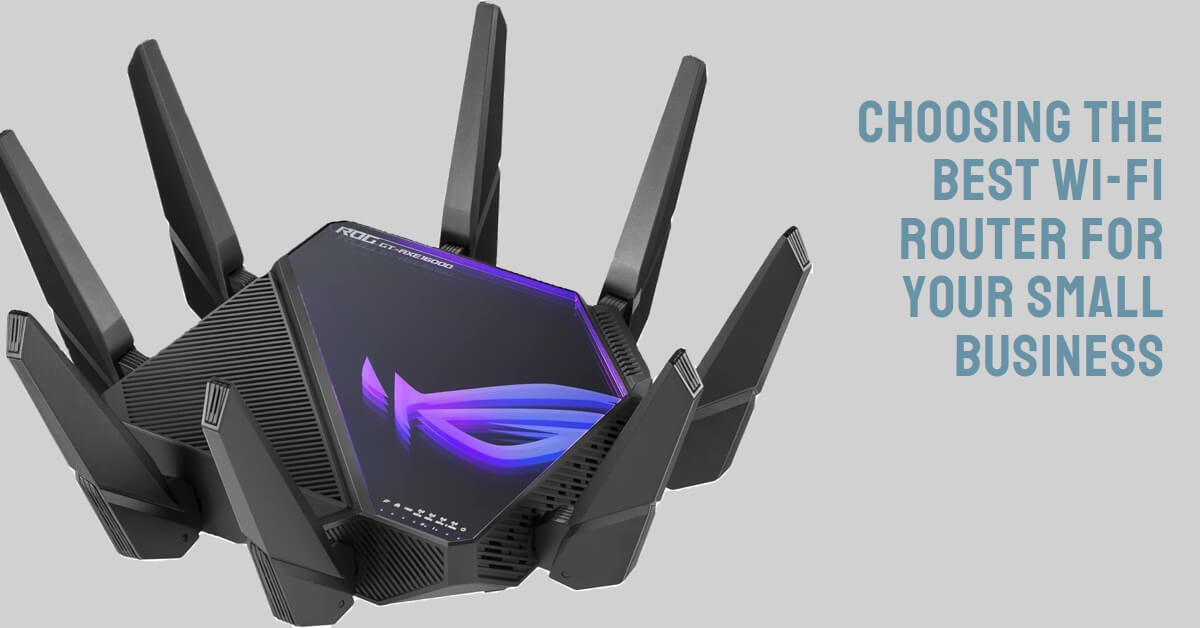
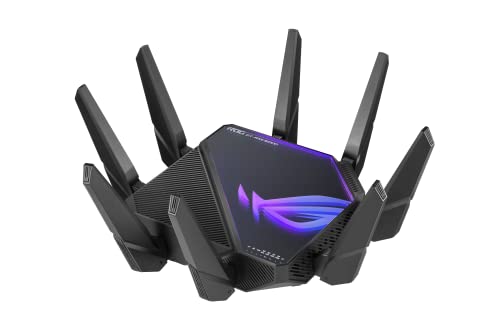





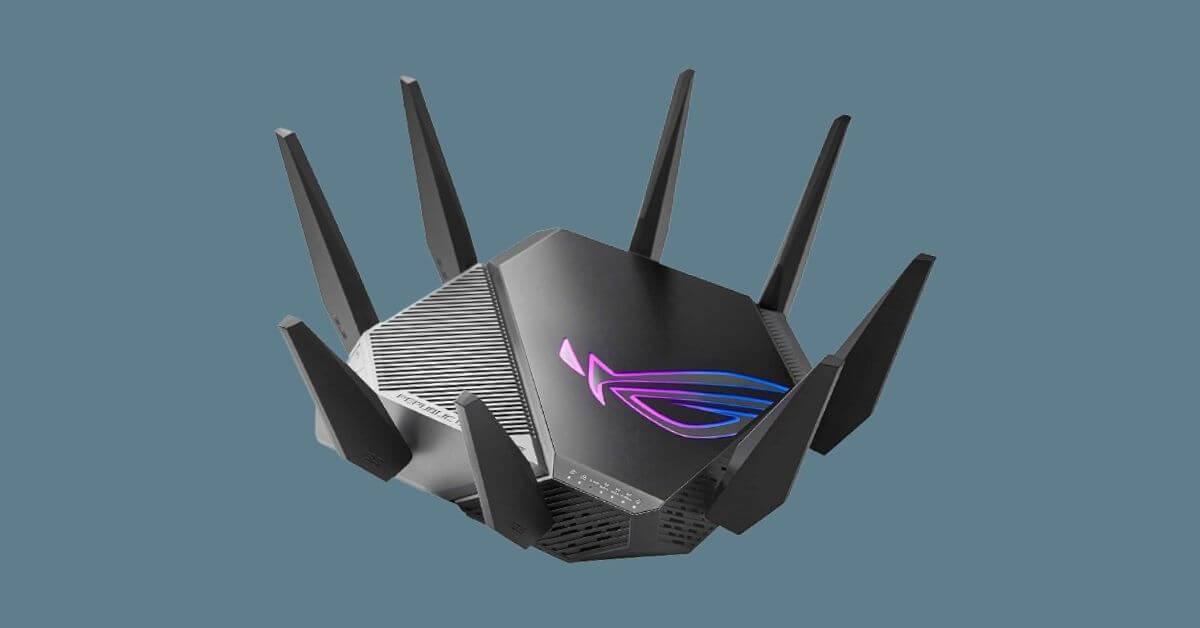

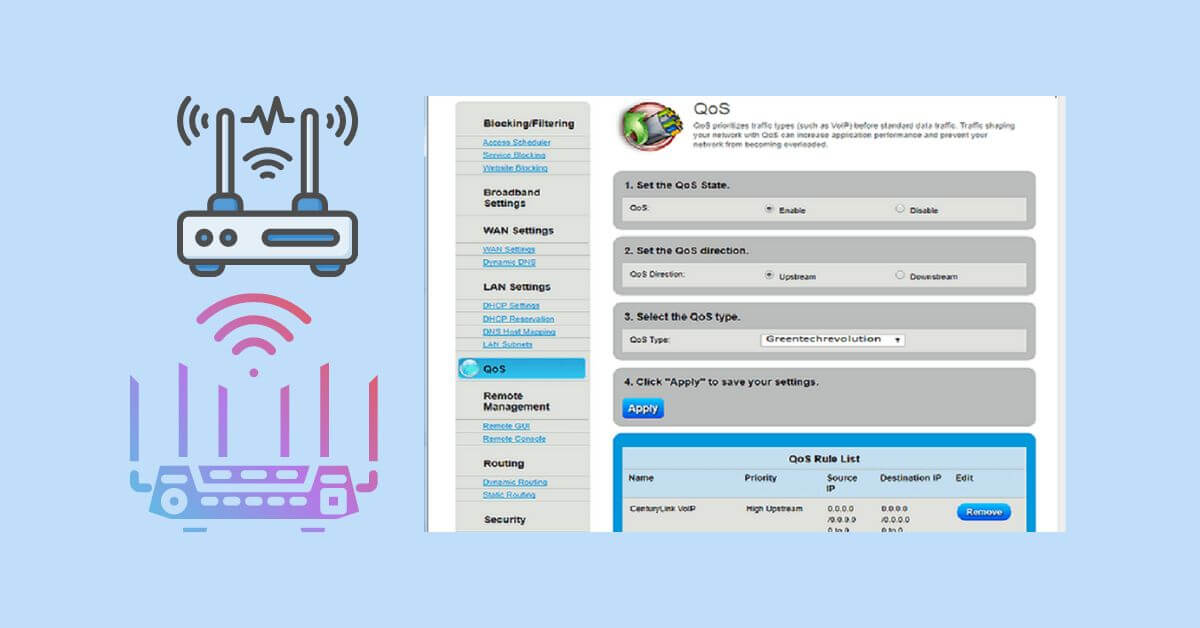


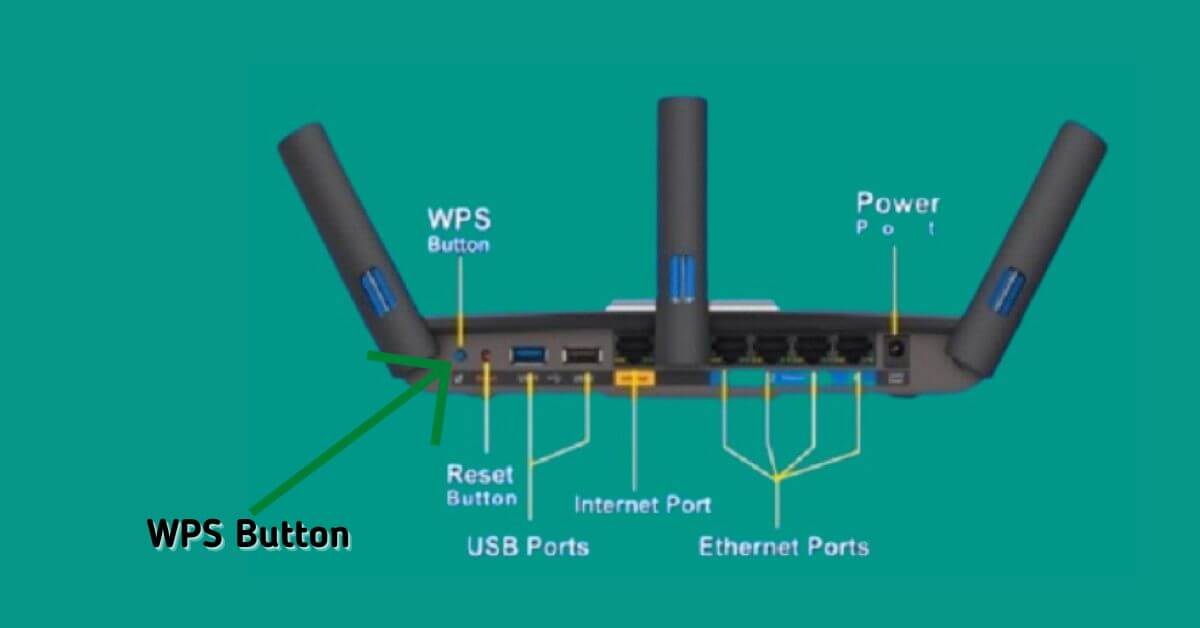
Leave a Reply
You must be logged in to post a comment.